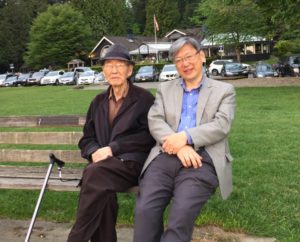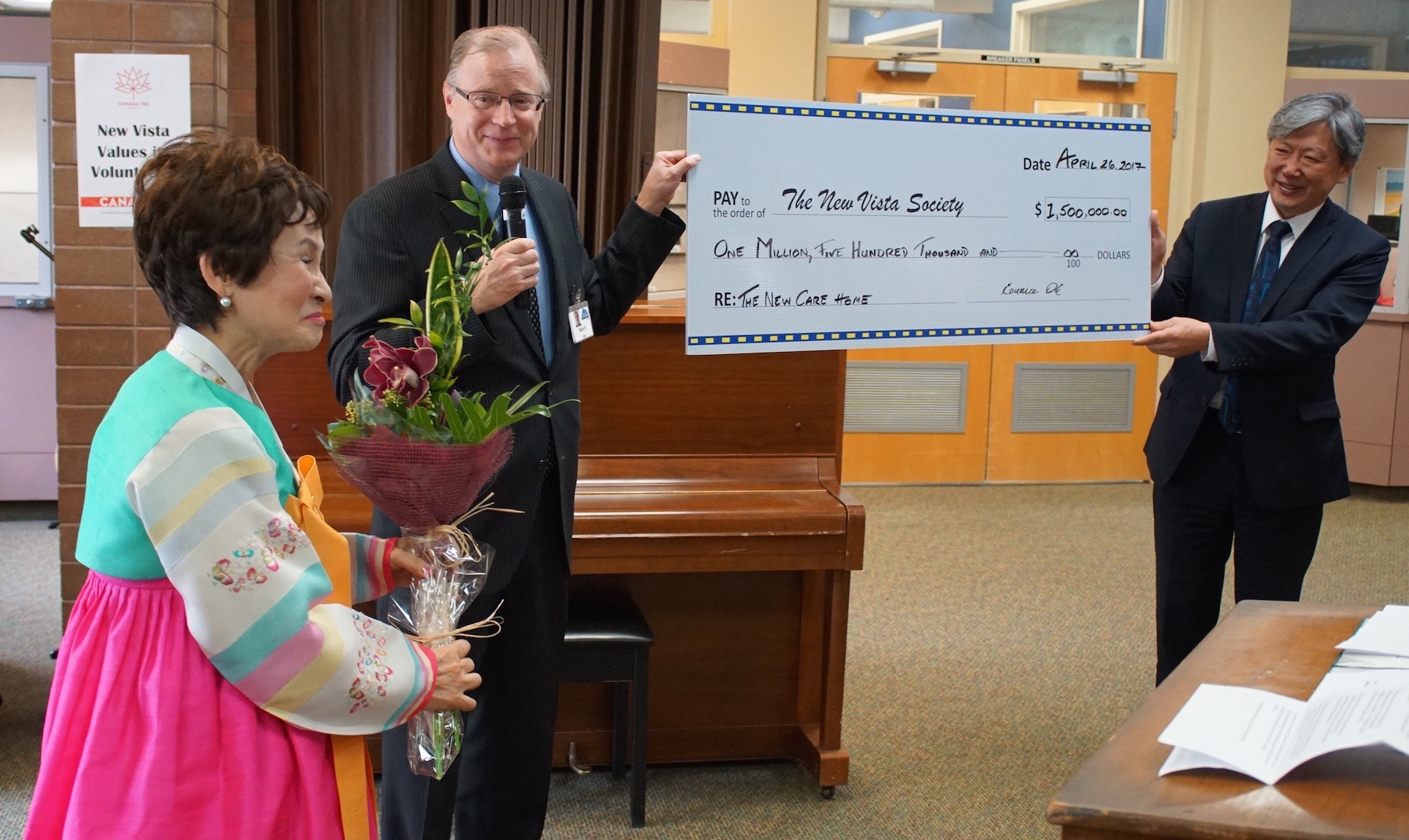This report features BCCPA member New Vista Society. Byline: Tereza Verenca / Burnaby Now
When Jung Eun Hwang entered a seniors’ home – first Queen’s Park Care Centre in New Westminster and later George Derby in Burnaby – it didn’t take long for his health to decline.
He died within a year and a half at the age of 87 in March 2016.
Culturally sensitive gaps in care contributed to his health problems, according to Hwang’s son, Michael. Language, culinary and social barriers were an issue for the late Korean War vet and POW. Many Korean-Canadians face the same challenges, he said.
The lawyer gave the example of crackers, peanut butter and cheese – food nurses would use for swallow tests to see if his dad was having any issues.
“(The) food was foreign to his mouth. There was no instinctive reaction to chew or swallow,” Michael told the NOW. “Based on that culturally centric testing, he was diagnosed as having trouble and was put on puree food, so he refused to eat or he wouldn’t he that much; just unappetizing.”
But when Michael would bring Korean cuisine such as soup, noodles or fish, his father would eat it all up. He even filmed his dad swallowing and showed it to staff.
“I think when you put a senior in an environment where they face barriers, they just shut down and say to themselves, ‘I don’t want to be burden to my society or my family and I’m just going to die,’” Michael said. “I don’t doubt for a minute he decided this is enough, I’ve lived enough, I don’t want to live in a home like this.”

More culturally sensitive residential care homes are needed for the multi-cultural and aging population, he said. Current facilities can be ill-equipped to deal with culturally diverse residents.
Michael pointed to the Nikkei Centre, which serves Japanese-Canadians seniors, and to Surrey’s Amenida care home, which caters to the Korean community.
“People are well fed. They have more meat on their bones because they feed them Korean food three times a day,” he said. “There’s a man out there who is about 105 years old and he walks every day. He’s very healthy. They have a social network there. They can speak the language.”
Michael shared his father’s story on Thursday at New Vista Care Home during a cheque presentation.
New Vista Society is building a new 240-bed, seven-storey building on a plot of land next to its current building, which is roughly 40 years old. Doors are expected to open summer of 2020.
This time, however, the facility will have an entire floor dedicated to Korean-Canadians, thanks to a $1.5-million donation from Eunice Oh of Port Moody. One million will go towards the construction costs (it costs about $6.5 million to build one floor) and another $50,000 will be donated each year for a decade to cover the cost of running it.
“We have a large population of Korean-Canadians in our housing units and it was natural partnership for us,” said Darin Froese, New Vista’s CEO. “There’s a huge opportunity for other patrons who support multicultural initiatives and support culturally sensitive care to get engaged.”
For Oh, last week was “a dream come true.”
As a Korean-Canadian senior and the former president of the Korean-Canadian Society of Greater Vancouver, the cheque presentation was at least 15 years in the making.
Oh previously approached both Burnaby and Coquitlam city halls to request a Korean seniors’ home, but was denied, she said, because she didn’t have experience running such a facility.
When she heard of New Vista’s construction endeavours, she reached out right away to see how she could help.
“This is our start,” said Oh. “When we have experience with this, we can have more and more projects like this in the future.”
The 70-year-old reiterated Michael’s sentiments about Korean-Canadians needing a place that’s familiar to them.
Oh recalled a heartbreaking story about her father’s friend, who committed suicide in the mid-90s because he didn’t want to live in the nursing home.
“I’m relieved now,” she said of the New Vista partnership. “And I’m so happy.”




